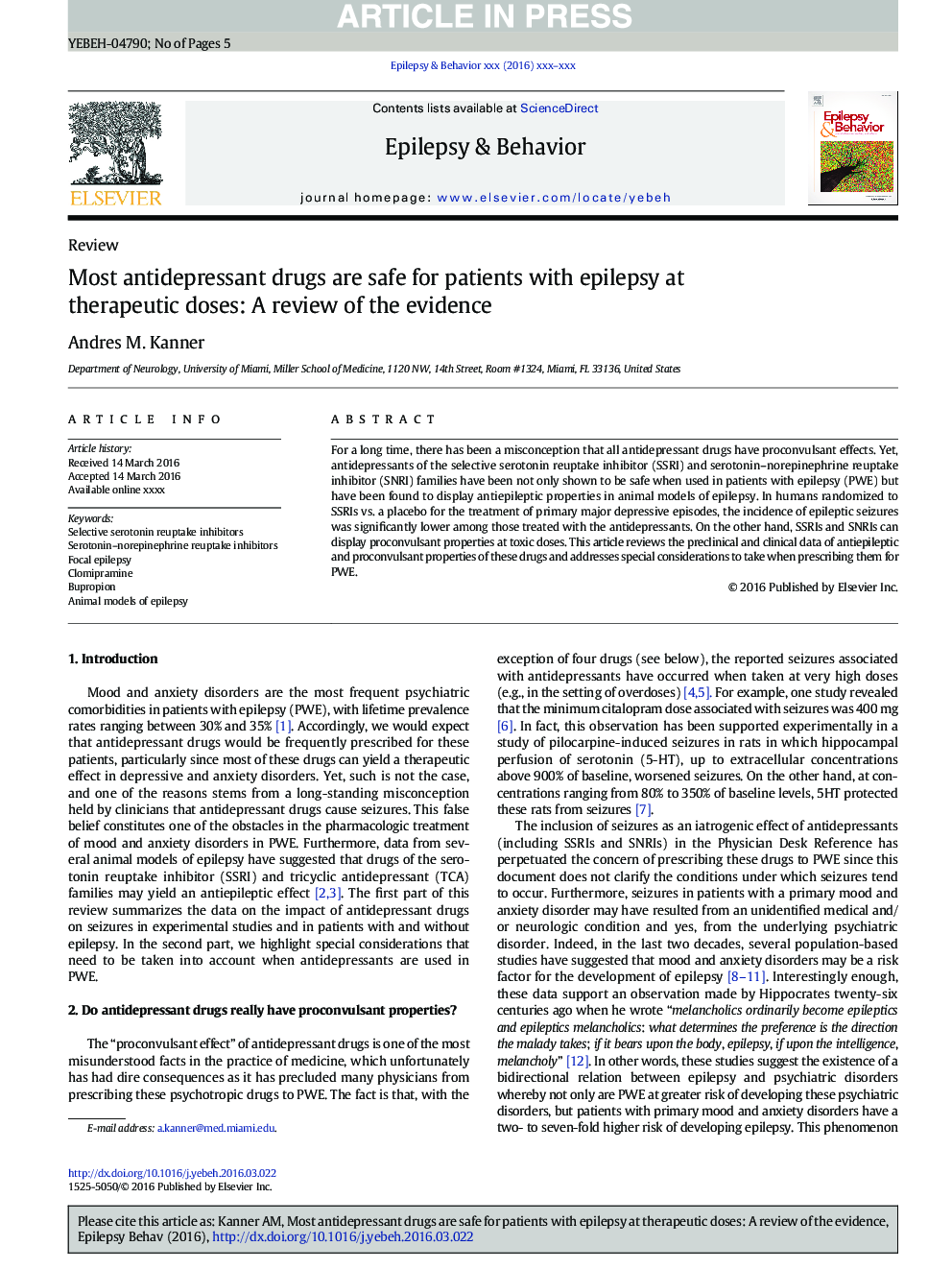| Article ID | Journal | Published Year | Pages | File Type |
|---|---|---|---|---|
| 6009938 | Epilepsy & Behavior | 2016 | 5 Pages |
Abstract
For a long time, there has been a misconception that all antidepressant drugs have proconvulsant effects. Yet, antidepressants of the selective serotonin reuptake inhibitor (SSRI) and serotonin-norepinephrine reuptake inhibitor (SNRI) families have been not only shown to be safe when used in patients with epilepsy (PWE) but have been found to display antiepileptic properties in animal models of epilepsy. In humans randomized to SSRIs vs. a placebo for the treatment of primary major depressive episodes, the incidence of epileptic seizures was significantly lower among those treated with the antidepressants. On the other hand, SSRIs and SNRIs can display proconvulsant properties at toxic doses. This article reviews the preclinical and clinical data of antiepileptic and proconvulsant properties of these drugs and addresses special considerations to take when prescribing them for PWE.
Keywords
Related Topics
Life Sciences
Neuroscience
Behavioral Neuroscience
Authors
Andres M. Kanner,
